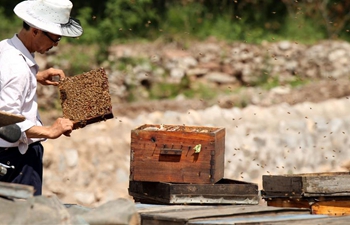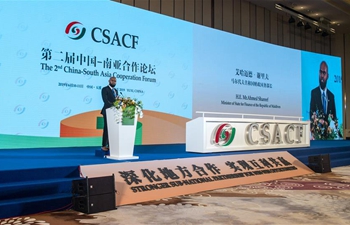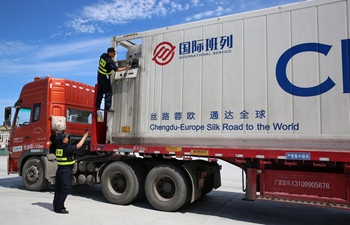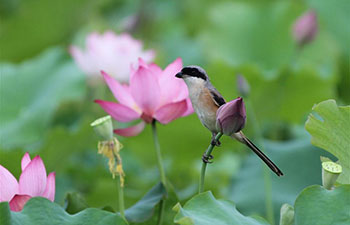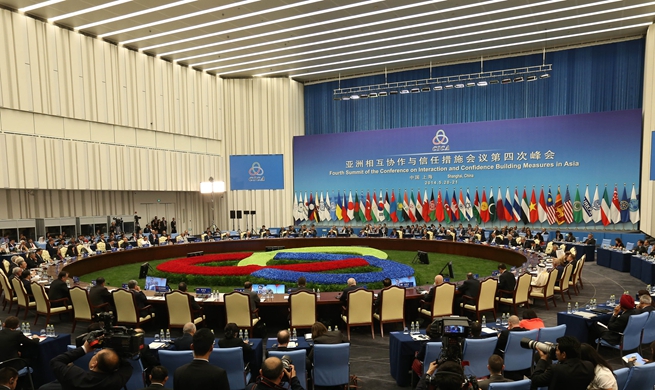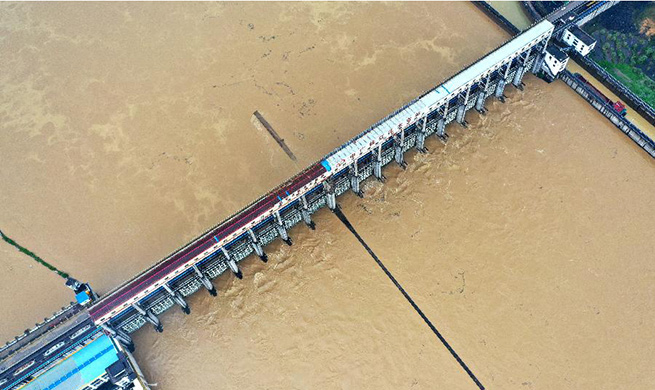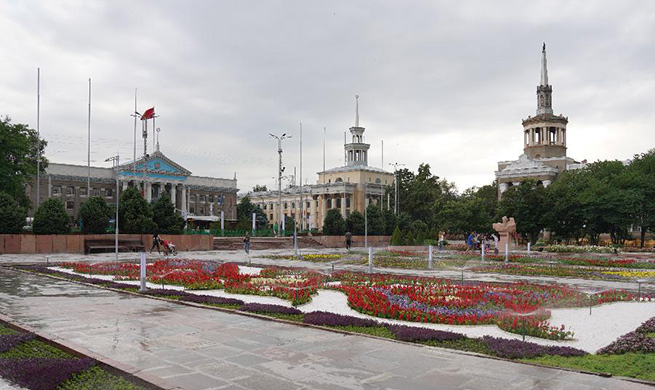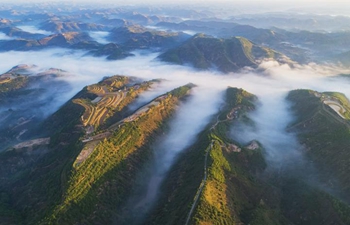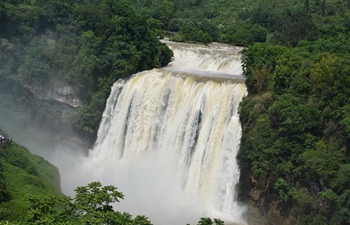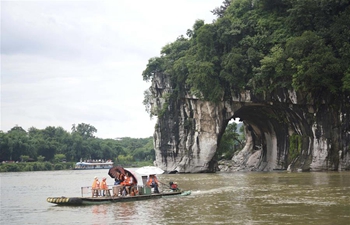MANILA, June 11 (Xinhua) -- The World Health Organization (WHO) in the Western Pacific Region urged countries in the region on Tuesday to be more vigilant and step up efforts to stop the spread of dengue cases as the rainy season approaches.
Several Asian countries are experiencing unusually high numbers of dengue cases for this time of year, the U.N. health agency said. “With the rainy season approaching, WHO is calling for action to minimize illness and deaths from dengue,” WHO said.
Dengue is one of the fastest-spreading mosquito-borne diseases. Worldwide, WHO said the incidence of dengue has increased 30-fold over the past 50 years. Dengue is a major public health concern as it can develop into a potentially fatal form called “severe dengue,” WHO warned.
Of an estimated 2.5 billion people at risk for dengue globally, WHO said about 70 percent live in the Asia Pacific region.
Climate conditions, unclean environments, unplanned urban settlements and rapid urbanization can lead to increased mosquito breeding, especially in urban and semi-urban areas.
Several countries in the WHO Western Pacific Region such as Cambodia, Laos, Malaysia, the Philippines, Singapore and Vietnam have observed early increases in the number of dengue cases reported so far this year.
“The increased number of cases is of concern, but even more worrying is the increase in the rate of people dying from dengue, especially children,” WHO Regional Director for the Western Pacific Takeshi Kasai said.
“This is a signal that we need to work with countries to strengthen care as well as prevention,” Kasai added.
Kasai said health workers in dengue-endemic areas “must be able to recognize the symptoms of dengue and the warning signs of severe dengue, do diagnostic tests and provide life-saving care."
“Also, families need to know what symptoms to look for and where to get early medical attention. This is especially urgent with the rainy season coming to many parts of Asia,” he added.
In Cambodia, WHO said there has been an upward trend in suspected dengue cases recorded since the beginning of 2019. “More than 1,300 suspected cases were reported in week 21 alone - a level which is higher than expected for this time of the year,” WHO said.
In Laos, WHO said suspected dengue case numbers are higher than the same period during the previous five years. So far in 2019, as of week 21, WHO said a total of 4,216 suspected cases including 14 deaths have been reported.
In Malaysia, WHO said a total of 52,941 cases including 81 deaths were reported during the first 22 weeks of 2019. The number of cases is around twice that of the same period in 2018, it said.
In the Philippines, WHO said a total of 77,040 suspected cases of dengue, including 328 deaths, were reported in the first 20 weeks of 2019.
“This is almost double the 41,104 cases reported during the same time period last year. Case numbers remain high, but as they are starting to decline, the rainy season is approaching,” WHO said.
Philippine Health Secretary Francisco Duque warned on Monday that dengue cases in the Philippine could reach 240,000 across the archipelago this year if preventive measures are not put in place to stop the spread of dengue.
In Singapore, WHO said the number of dengue cases has been increasing over the past eight weeks. As of week 21 of 2019, WHO said there were a total of 3,886 cases reported, compared to 1049 cases reported during the same period last year.
In Vietnam, WHO said there have been a total of 59,959 suspected cases reported including four deaths as of week 19, more than three times the number for the same period in 2018.
To minimize deaths, WHO said affected people and caregivers of children must seek early medical attention from health-care workers with the training and resources necessary to provide appropriate care.
There is no specific treatment for dengue but early detection, improved clinical management and access to proper medical care for severe dengue can reduce fatality rates.
WHO recommends that dengue-endemic areas continue educating the population and health workers on recognizing dengue symptoms and the warning signs of severe dengue.
Appropriate home care with adequate hydration and rest during the early stages can minimize the risk of the disease becoming severe.
WHO supports countries to train health professionals on the diagnosis and proper management of dengue and to prepare health centres and hospitals for effective response in case of outbreaks and influxes of patients.
WHO also encourages governments and communities to reduce the spread of dengue by informing the public of how to clean up mosquito breeding sites.
“With these measures, we can minimize the impact of dengue on people in our Region and save lives,” Kasai said.





